
MICROSOFT AZURE CLOUD COMPUTING
Microsoft Azure is a growing set of cloud computing services created by Microsoft that hosts your existing applications, streamline the development of a new application, and also enhances our on-premises applications. It assists organisations in developing, testing, deploying, and managing applications and services.
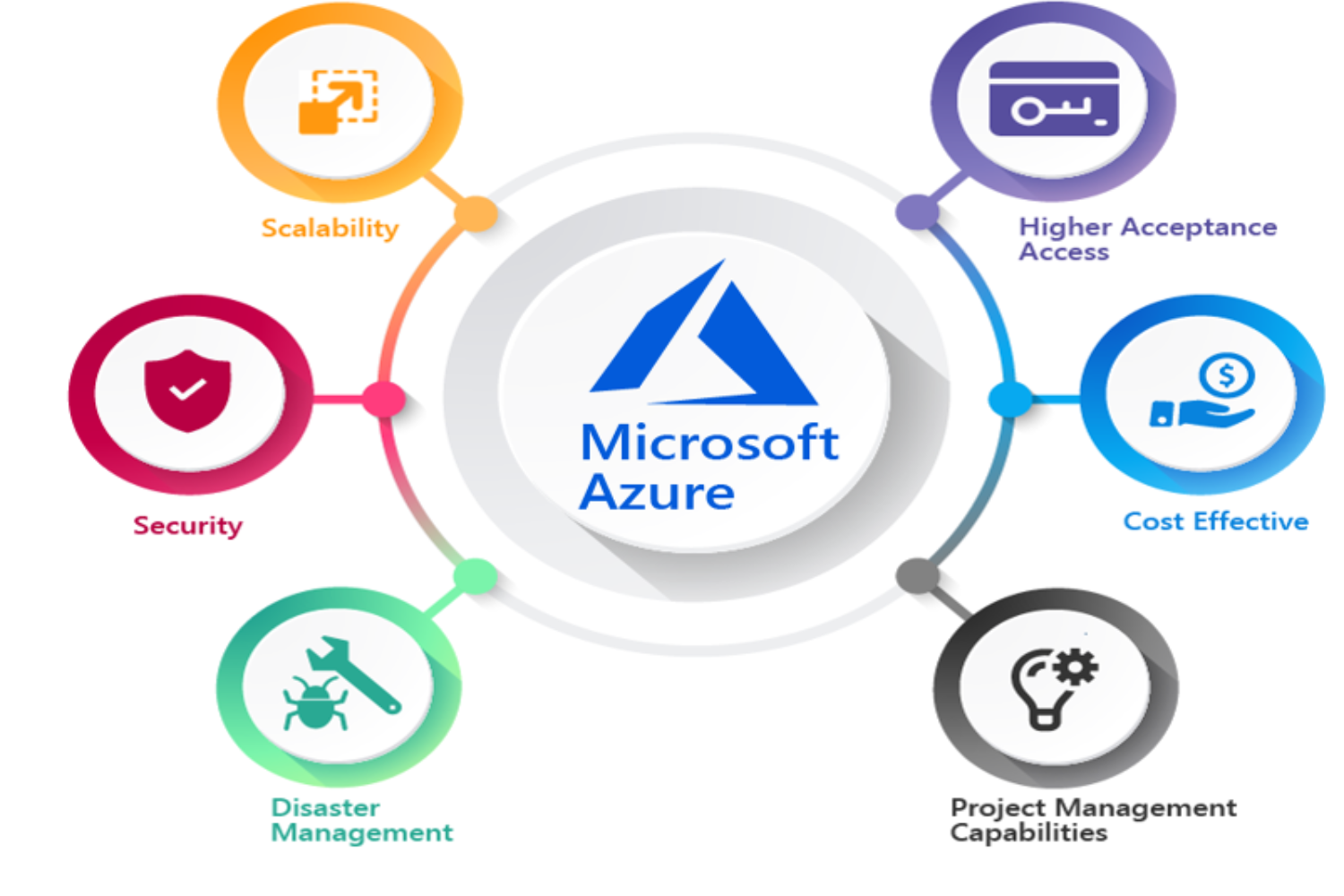
Working of Microsoft Azure
It is a platform for both public and private clouds that aids in the development, deployment, and management of applications by IT specialists and developers. It makes use of virtualization technology. By utilising an abstraction layer known as a hypervisor, virtualization breaks the close relationship between the operating system and the hardware. A virtual machine created by a hypervisor can perform all computer functions. It can run multiple virtual machines concurrently, and each virtual machine can run any operating system, including Windows and Linux. Azure uses a Microsoft-owned datacenter to replicate this virtualization technique on a massive scale. Every data centre has a large number of racks full of servers, and each server has a hypervisor that allows it to run multiple virtual machines. All of those servers have connectivity thanks to the network switch.
Every rack has a single server that is running a unique programme known as the fabric controller. Every fabric controller is linked to an additional unique software programme called the Orchestrator. Every Orchestrator bears the responsibility of overseeing the tasks, including attending to user inquiries.
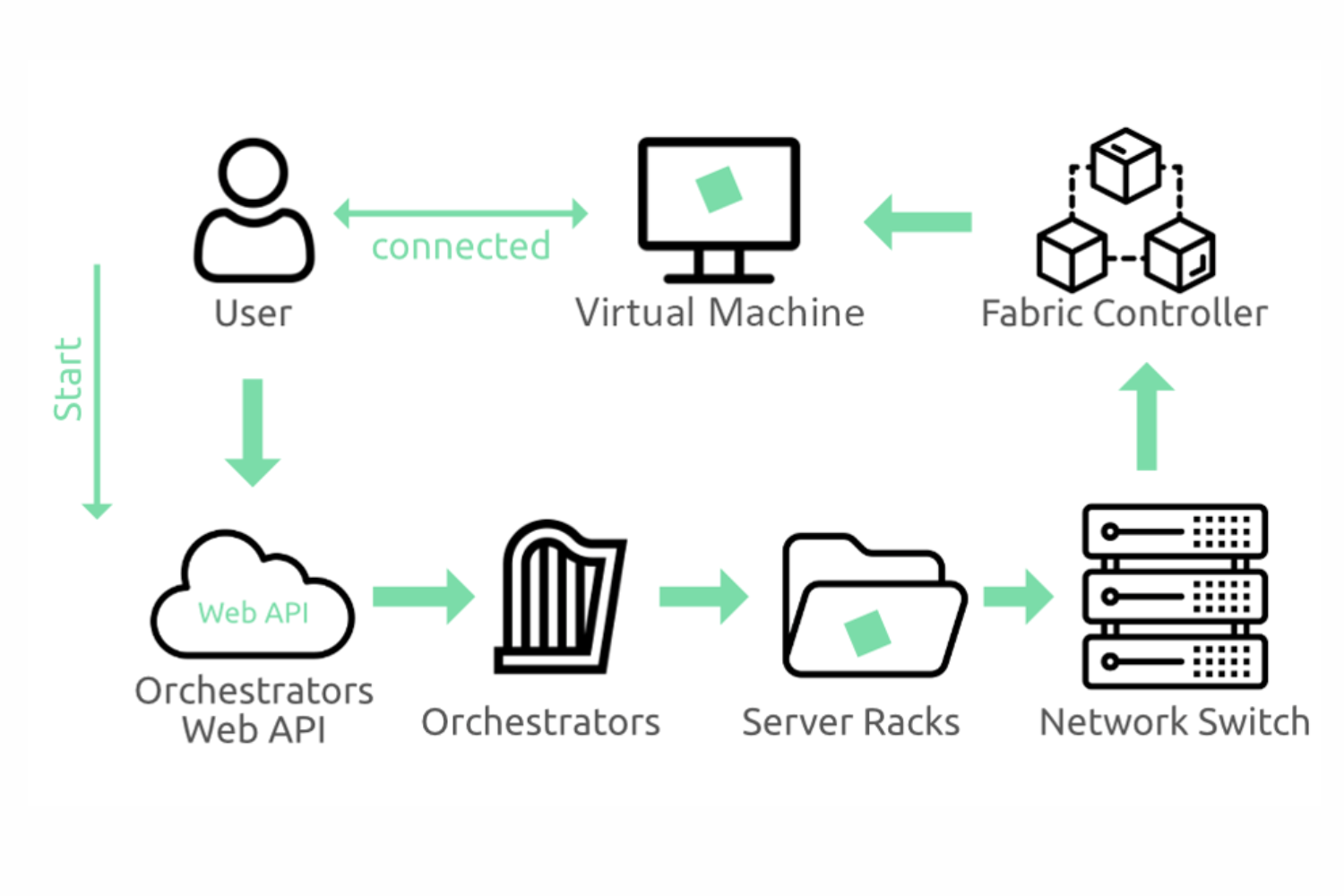
Microsoft Azure Services
Microsoft Azure offers an extremely large portfolio of cloud services, which it divides into fourteen categories:
1. Compute- It includes Virtual Machines, Virtual Machine Scale Sets, Functions for serverless computing, Batch for containerized batch workloads, Service Fabric for micro services and container orchestration, and Cloud Services for building cloud-based apps and APIs
2. Networking- This encompasses a range of networking tools, such as the ExpressRoute dedicated private network fibre connections, Azure DNS for domain hosting, Content Delivery Network, Load Balancer, Application Gateway, VPN Gateway, and Virtual Network, which can connect to on-premise data centres.
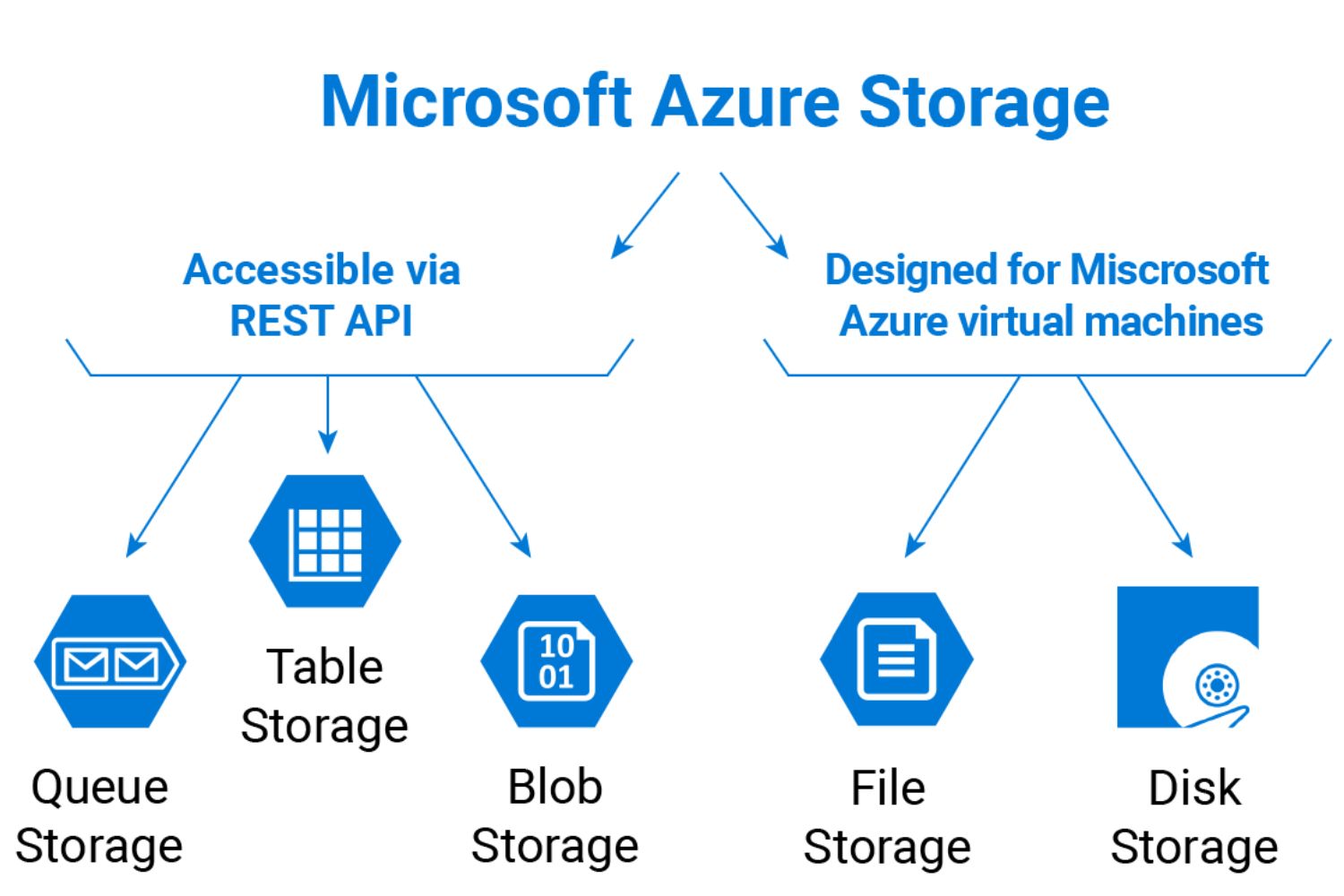
3. Storage- This comprises, among other things, Blob, Queue, File, and Disc Storage, a Data Lake Store, Backup, and Site Recovery.
4. Web + Mobile- consists of various services for developing and implementing applications; however, the most prominent one is arguably the App Service, which includes services for developing and implementing mobile apps, Web apps, Logic apps (a data-driven, low-code service), and API apps (for generating and utilising APIs).
5. Containers- include tools for micro services and Container Service, which supports DC/OS or Docker Swarm, Kubernetes, and Container Registry.
6. Databases- includes Cosmos DB, Table Storage for NoSQL, Redis Cache in-memory technology, and a number of SQL-based databases and related tools.
7. Data + Analytics- comprises big data tools such as Power BI Embedded, Stream Analytics, Data Lake Analytics, and HDInsight for Hadoop Spark, R Server, HBase, and Storm clusters, among others.
8. AI + Cognitive Services- This category comprises various tools for creating artificial intelligence-capable applications, such as the Face API, Computer Vision API, Bing Web Search, Video Indexer, Language Understanding Intelligent Service, and more.
9. Enterprise Integration- includes multiple tools for building and managing hybrid cloud computing environments.
10. Security + Identity- includes Security Center, Azure Active Directory, Key Vault and Multi-Factor Authentication Services.
11. Developer Tools- these comprise cloud development services such as Xamarin cross-platform mobile development, HockeyApp mobile app deployment and monitoring, Azure DevTest Labs, Visual Studio Team Services, and more.
12. Monitoring + Management- This section contains a variety of tools, including the Microsoft Azure Port, Azure Resource Manager, Log Analytics, Automation, Scheduler, and more, for managing Azure workloads and hybrid cloud environments.
13. Microsoft Azure Stack- consists of tools to replicate Azure infrastructure in business data centres, making hybrid cloud deployments easier.
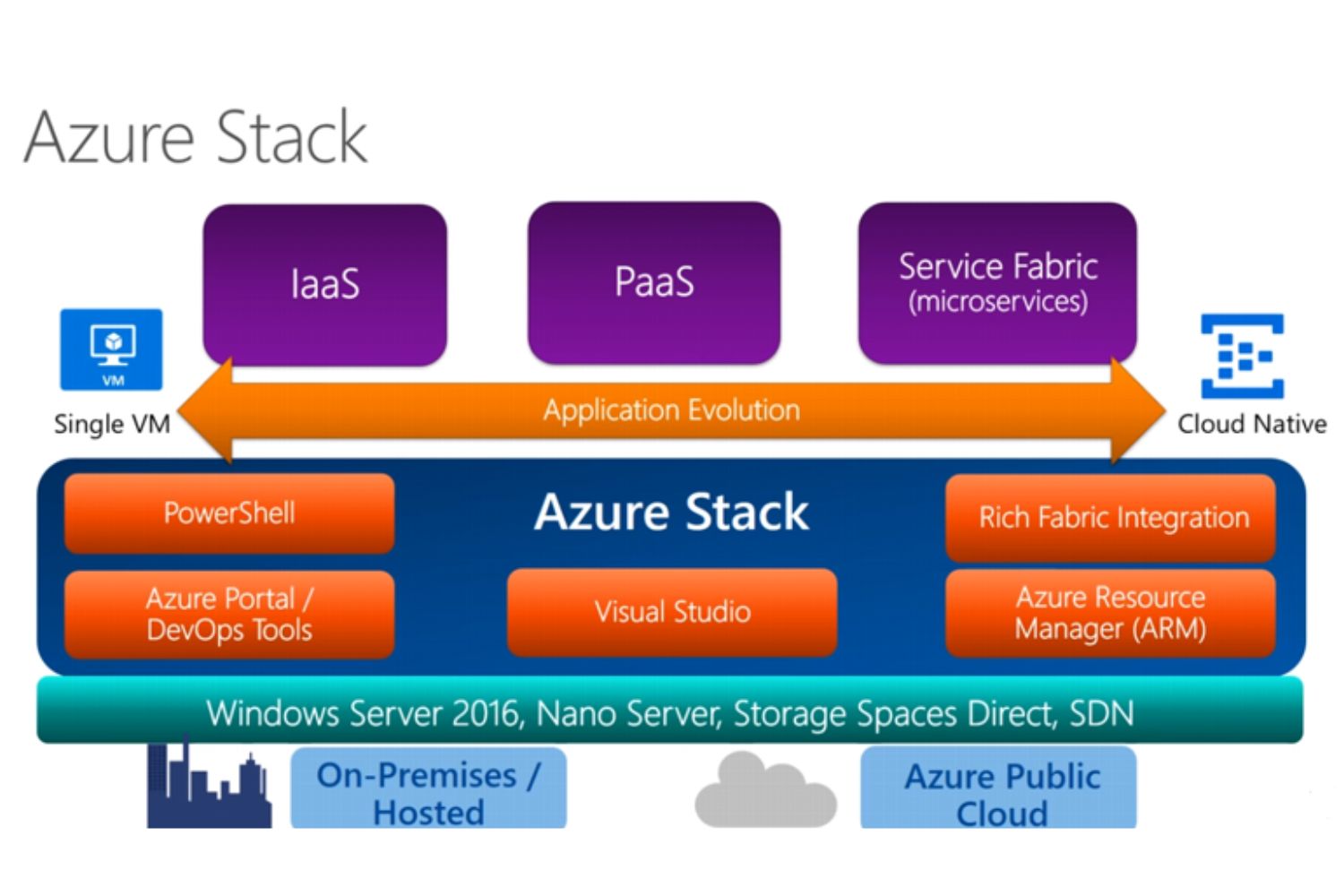
Benefits of Microsoft Azure
Here are a few benefits of utilising Microsoft Azure:
High availability is the attribute of computing infrastructure that enables it to keep running even in the event that some of its parts fail.
Data Security: Azure offers a plethora of cloud data security tools, including Azure Information Protection, Microsoft Defender for Cloud, Key Vault, and many others.
Scalability: Azure offers both vertical and horizontal scaling, which adjust resource capacity or add additional resources to handle demand.
Cost-effective: Azure offers a variety of pricing options that can reduce expenses.
Learning Curve: For learning, Azure offers a variety of programming languages, including C# and Visual Basic, as well as tools, like Visual Studio, Azure ML Studio, and Azure Dev tools.
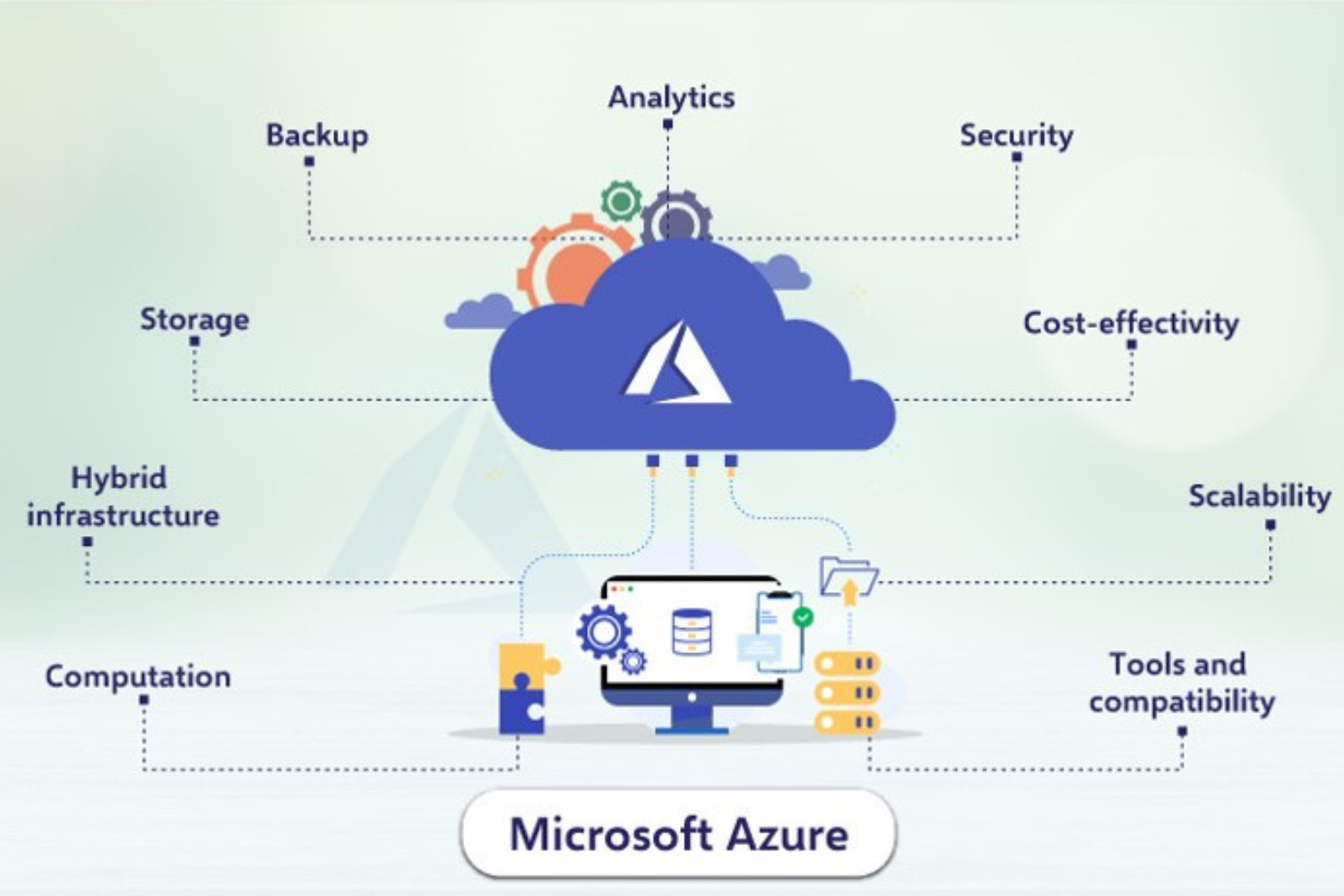
Hybrid-Capabilities : Azure provides hybrid working model. It allows the organization or enterprise to avail services from public cloud as well as from on-premise network.
Job Roles
1. Azure Administrator
2. Cloud Engineer
3. Solutions Architect
4. DevOps Engineer
5. Cloud Consultant
6. Cloud Security Engineer
7. Cloud Developer
8. Cloud Architect
9. Cloud Consultant
Microsoft Azure Salary
The average Microsoft Azure salary in SCODEEN Global ranges from approximately ₹13 Lakhs to ₹35 Lakhs Per Annum.
Course Highlights
1. Suited for students, fresher’s, professionals, and corporate employees
2. Live online classes
3. 4-month program
4. Certificate of completion
5. Decision Oriented Program of Analysis
6. Live Classes by highly experienced faculties
7. Hands-on experience with real-life case studies

Conclusion
Microsoft Azure provides a wide range of features and benefits for businesses of all sizes, and it is a powerful cloud computing platform that provides businesses with a range of benefits, including scalability, flexibility, security, cost savings, disaster recovery, collaboration, and advanced analytics. Furthermore, If you are considering cloud computing for your business, Microsoft Azure is worth exploring. With its wide range of features and services, Azure can help you take your organization to the next level and stay ahead of the competition.

